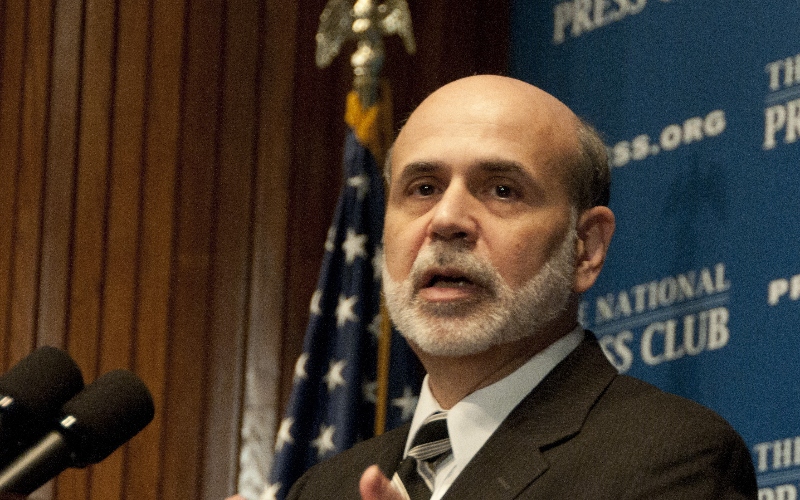The green energy transition risks stagnating. Despite governmental and corporate pledges, only 20 per cent of total investments in 2015 were allocated to renewables. A major roadblock is that government finances are stretched thin globally. Nader Virk and Giulia Fantini write that the shift towards green energy generation, transmission and distribution primarily hinges on investments by oil and gas firms and financing by the financial services sector.
Geopolitical unrest often disrupts the flow of funds into green technologies, jeopardising progress in renewables and compelling oil and gas companies to intensify fossil fuel investments to fill the gaps. While resorting to fossil fuels may offer a convenient solution in times of supply shocks, it remains an interim measure, an expedient attempt to mitigate imminent challenges in energy security, affordability, and industrial competitiveness.
The Paris Agreement established a target of 1.5°C as the maximum temperature increase above pre-industrial levels. To adhere, ratifying states and the European Union must find a way to accelerate global energy investments, which should grow between two and four per cent annually, aligning with global GDP growth. Numerically speaking, this growth should result in aggregate energy investment increases from $2.2 trillion in 2025 to $3.2 trillion in 2040. To reach these targets and avoid the most severe impacts on climate change, carbon dioxide emissions must be restricted.
The global economy’s dependence on fossil fuels to meet energy demands and growth expectations is likely to persist for the next 25 years. Thus, ensuring energy security and stability on a global scale, particularly for European economies, requires a substantial increase in investment towards renewables and decarbonisation technologies. However, despite governmental and corporate pledges, current investment falls short, with only 20 per cent of total investments in 2015 allocated to renewable and alternate solutions. To materialise green transformation, this ratio need to be elevated to 40 to 50 per cent by 2040.
Governments are saddled with fiscal constraints. The ongoing battle against inflation, marked by increasing interest rates, further burdens sovereign balance sheets and fiscal limits. So, the shift towards green energy generation, transmission and distribution primarily hinges on corporate investments, and green/transition financing by the financial services sector on the back of incentivising policy frameworks.
Despite their significant vulnerability to energy shocks, European economies only dedicate around 20 per cent of their overall EU share of energy investments to renewables and low-carbon solutions. Although this represents the largest non-fossil fuel contribution worldwide, it highlights the considerable gap that keeps the world from achieving a green energy transformation.
With limited alternative solutions that could be scaled to usher in the energy transition, a “green war” among leading players stands as a looming threat to global energy security. The US Inflation Reduction Act is perceived as an enticing manoeuvre to attract clean energy technologies. Market and competitive issues add complexity to the emerging green race, heightened by long-term Chinese subsidies and the European Union’s adjustments to state-aid regulations.
Oil and gas companies, alongside financial services and regulatory frameworks, must recognise the imperative for transformative action and actively engage in funding green and transition finance initiatives. Major oil and gas firms are investing in low-carbon and renewable energy sources. However, the scrutiny of and the quantum of their investments in green and alternate energy remains minimal and is not increasing at the same rate relative to their investments in fossil fuel projects.
According to a BNP Paribas report, corporate investments by the 7,148 largest publicly listed global companies should rise to $1.07 trillion in a scenario aligned with the UN Sustainable Development Goals (SDG), compared to $611 billion in a business-as-usual scenario. Nearly one-third of these SDG-aligned investments are anticipated to originate from the global oil and gas sector, with investments expected to increase to $302 billion by 2020 from a mere $4 billion in 2017. These figures again highlight the wide gap on allocation of funds to GDP growth aligned investments in renewables and low carbon technologies to be at $2.2 trillion by the end of 2025.
The urgency of transitioning away from non-renewable sources is imminent. Anchoring organisational strategies in non-renewables poses both micro- and macro-level challenges in the form of climate-change risk. First, the expansion of oil and gas corporate investments underscores the crucial role of the industry in spreading green and transition finance in the energy sector. Second, marginal/insufficient investing in renewables perpetuates energy consumption from conventional sources and undermines net-zero and investment pledges made by the industry.
Despite significant plans for energy transition, actual allocation falls short. The four largest European oil and gas companies allocated only five per cent of their reported 2022 and 2023 mega profits to renewables and low-carbon solutions, despite exorbitant price hikes. Present investments in oil and gas projects vastly exceed those in renewables, in stark contrast to the SDG-aligned scenario. This disparity between expectations and reality underscores regulatory shortcomings in steering private investment towards renewables.
The financial services sector, a pivotal economic driver, presents its own challenge. In 2022 alone, major global banks financed a staggering $673 billion in fossil fuel projects. While global banks may be relatively secure in avoiding systemic financial shocks, they continue investments in fossil fuel projects that amplify other micro and macro level risks linked to climate change. Additionally, the financing structure and investments by global asset managers, particularly in developing countries, contradicts public statements on climate change and contaminates ESG investing through greenwashing, further slowing the transition.
Government policies play a crucial role in driving the energy transition, particularly within the oil and gas and financial sectors. The decreasing prices associated with emerging renewable energy technologies highlight the need for funding and regulatory oversight of large industry players. However, the absence of an aligned incentive plan through a comprehensive policy framework, coupled with banking regulations like Basel III, inadvertently hinder long-term debt financing for renewables and presents challenges for global policymakers.
In conclusion, the long-term solution remains unchanged: the provision of financial support for energy alternatives aimed at alleviating regional energy dependencies. In particular, in anticipation of potential conflicts, the transition to green energy risking stagnation and merits concerted, forward-looking collaborative efforts.
- This blog post represents the views of the author(s), not the position of LSE Business Review or the London School of Economics and Political Science.
- Featured image provided by Shutterstock.
- When you leave a comment, you’re agreeing to our Comment Policy.





